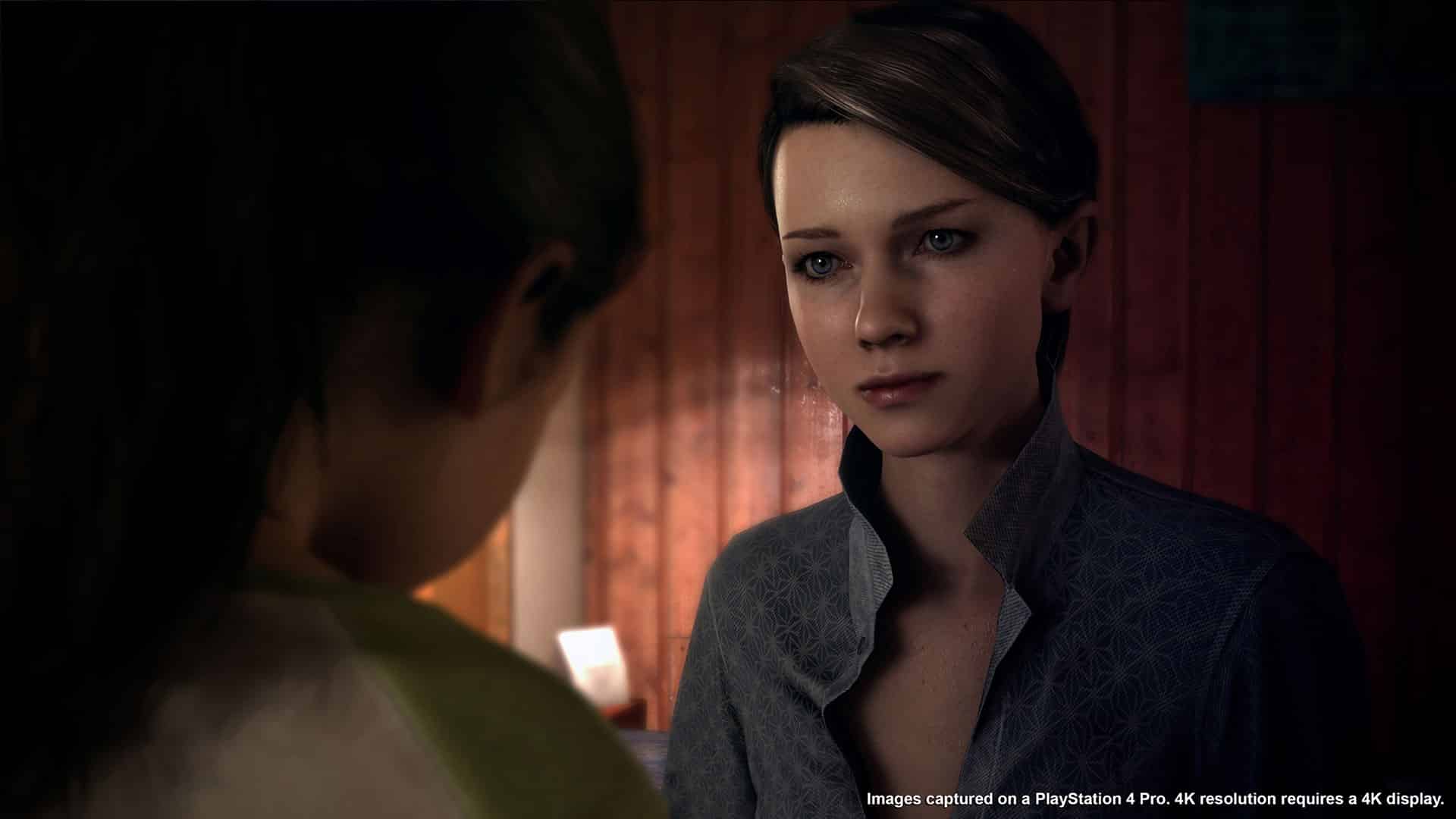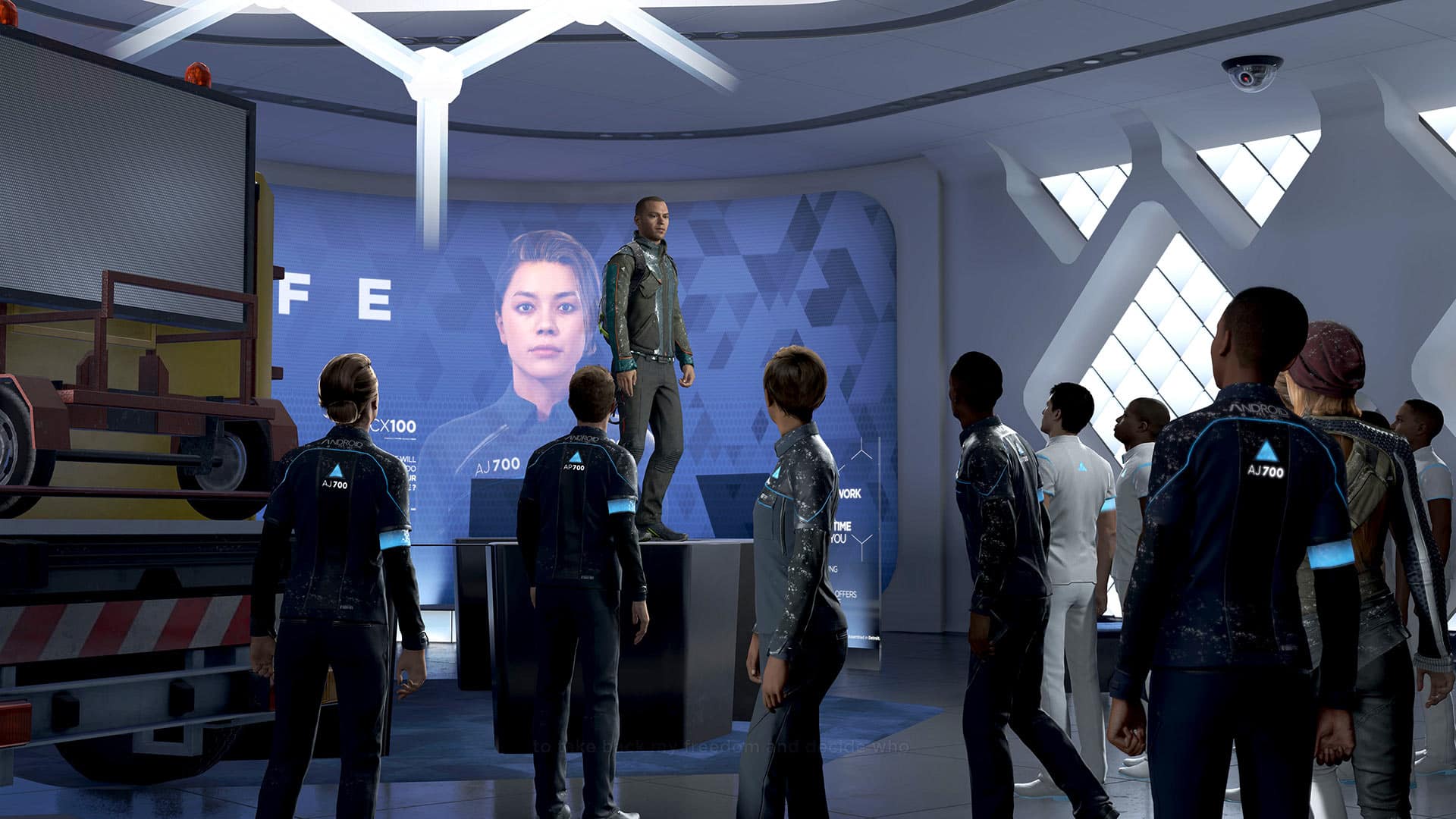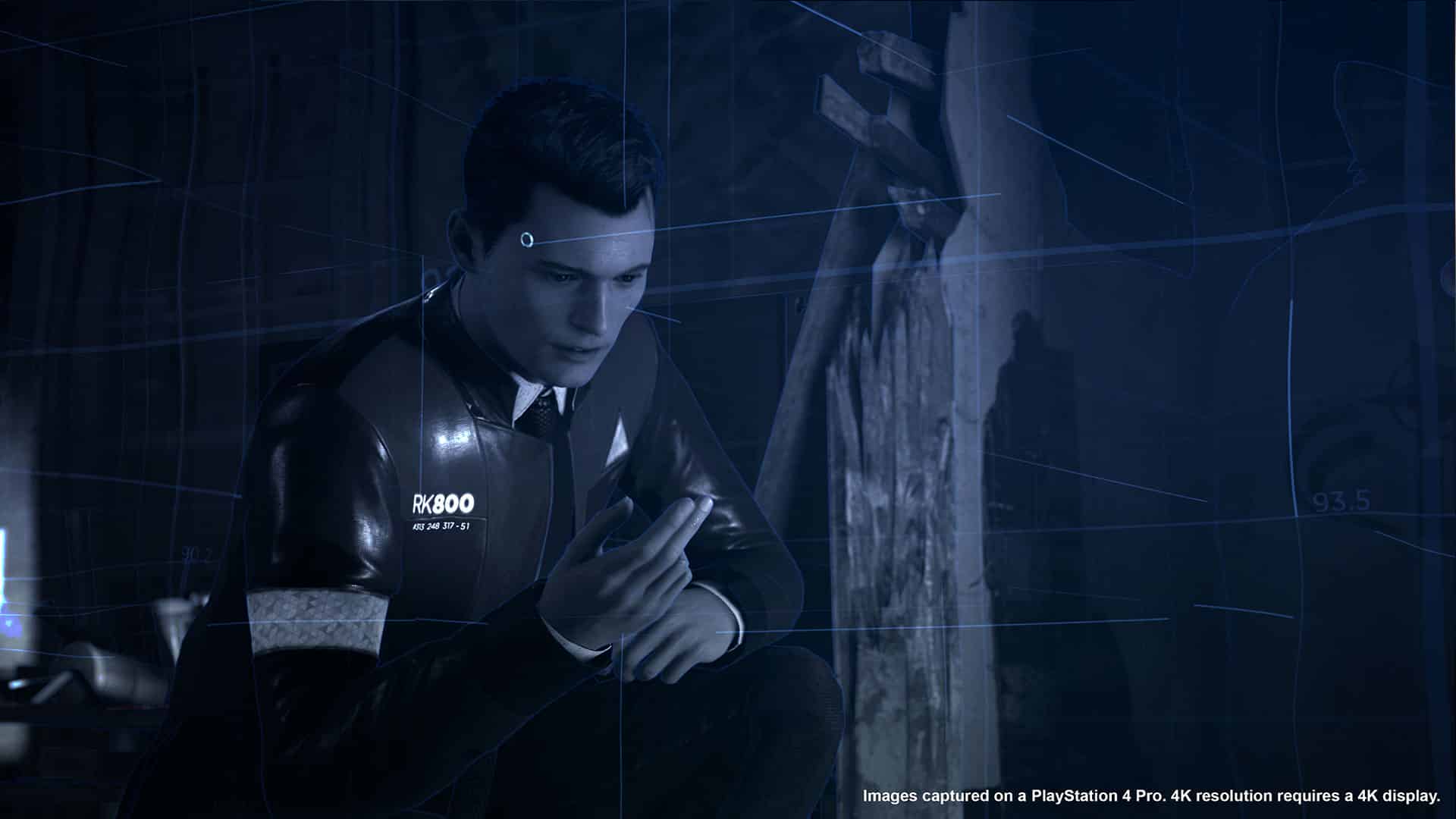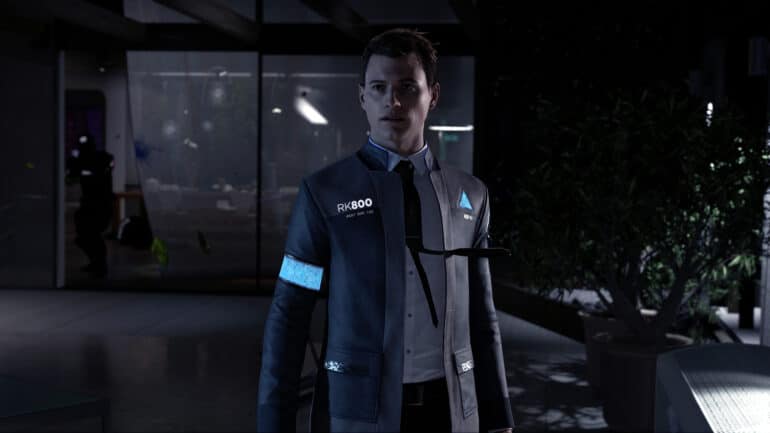Detroit Become Human tackles this topic in the form of androids. Androids that are tools of humanity that can pretty much cover any convenience we need, from attending to everyday work to more personal matters.
Apparently, for some unknown reason, androids have begun acting up against their programming. They begin showing independent behavior and start acting against their human masters. As to why they do this, nobody knows.
Androids that become independent from human control are referred to as “deviants” who are being hunted down and considered dangerous. Are they truly becoming independent and humanlike, or is it just a glitch in their program?

Detroit Become Human’s biggest selling point is in its narrative. It is a very story driven game. What little gameplay it has is you either making choices or participating in quick-time-events. What really sells it to the audience, however, is its very consequential atmosphere.
The game functions more like an interactive movie than an actual game. There is no third-person shooting segments or mini-games to partake yourself in. For some, this may turn them away from Detroit Become Human. If you don’t like this style of gameplay, you might want to steer clear.
Detroit Become Human takes full advantage of the PS4 controller to use every feature such as the touchscreen or the motion control to make you feel involved. At times, this can feel rather tedious. Especially since the right analog stick is often what you use to interact with objects which can clash with camera movement.

Immediately, Detroit Become Human has a strong, if intense opening. You are dealing with a hostage situation. Time is very limited, and you are left to your own to investigate the environment for clues of what you can use. This is a perfect tutorial mission and will pretty much give you a clear idea of what to expect from this game.
To show you that Detroit Become Human isn’t pulling any punches, you can either fail or even die on the first level depending on your actions.
The knowledge that your character can die at any time due to one mistake or a series thereof can bring tension to each choice. You know that you’re not safe and the character you’re controlling can die if you’re careless.
Speaking of characters, there are three protagonists that you take control of:
- Connor/RK800 is an android sent by CyberLife to assist the Detroit City Police in apprehending rogue androids. His main priority is to find the cause for android deviancy and put a stop to it. Each time you take control of him, it feels more like being in an episode of CSI, as Connor’s primary role in the game is usually to investigate crime scenes for what may or may not have happened. And he does it in style.
- Kara/AX400 is an android designed to provide household services. She provides the perspective of everyday android life as she finds herself stuck in an abusive household with a very ill-tempered owner. The tone of her story centers heavily on drama.
- Markus/RK200 is a caretaker android. Out of all the characters you control, his story changes narrative the most. He has to choose between pacifistic or violent options in order to further android interests. What he does ultimately affect android and human relationships the most. In terms of capabilities, he is closer to Connor/RK800 although much less advanced.
It’s very difficult to talk about Detroit Become Human’s story without spoiling much of anything. It’s a game that is heavily driven by emotion and drama. It makes you wonder if humanity is capable of coexisting with another intelligent life in the plane we exist in.
Since the game has multiple variations between endings, it is encouraged that you play through chapters again to make different choices to see different outcomes. Unfortunately, the gameplay doesn’t really make that fun or compelling.

If I have to be honest, how Detroit Become Human presented itself had me in tears. I’ve played many video games in my time and I don’t often shed tears, but this game brought them out of me. I find it rather ironic that a game that centers around androids felt more human than most games I played out there.
It’s definitely worth experiencing at least once. Unfortunately, it really doesn’t have the same strong effect after having to play through it twice. Not helped by the gameplay which doesn’t feel very encouraging to experience again.

Even though I mentioned that Detroit Become Human’s story is heavy on drama and emotion, I can’t very well say that it’s a perfect story. It seemed more interested in using androids as an analogy for racism rather than going off the rails to experiment more on how artificial life can interact with humanity. There could’ve been more situations where the game gets creative with its story rather than trying hard to mirror real life racial issues. Because truth be told, the struggle between human beings and androids feels too similar to racism than two species trying to understand each other.
That being said, I still like the story. Not many games out there have made me cry or care about the characters as much as Detroit Become Human did.
If you’re looking for a good choice tailored game, then Detroit Become Human may just be for you.
Disclosure: This review is based on a review code provided by PlayStation Asia.
